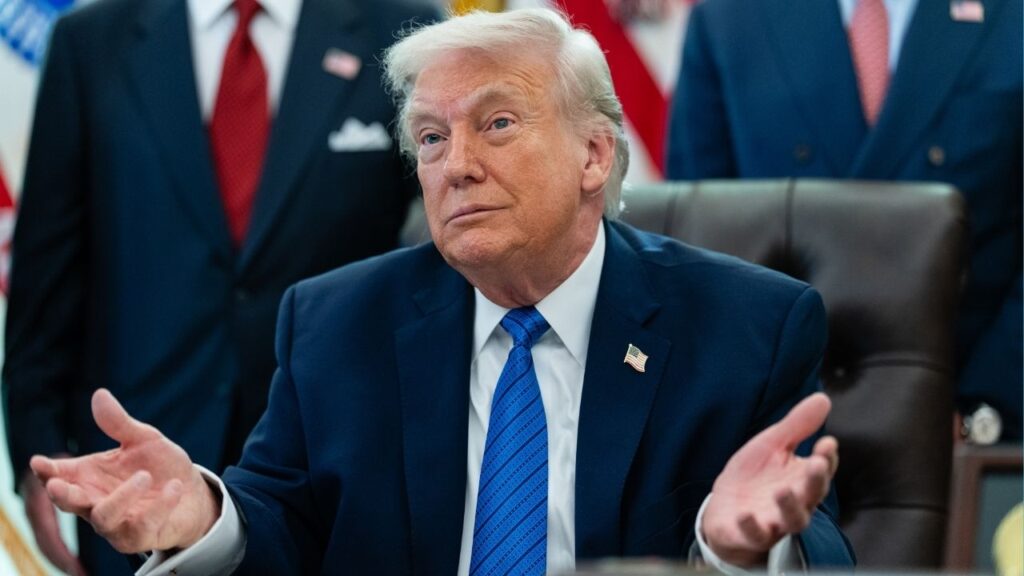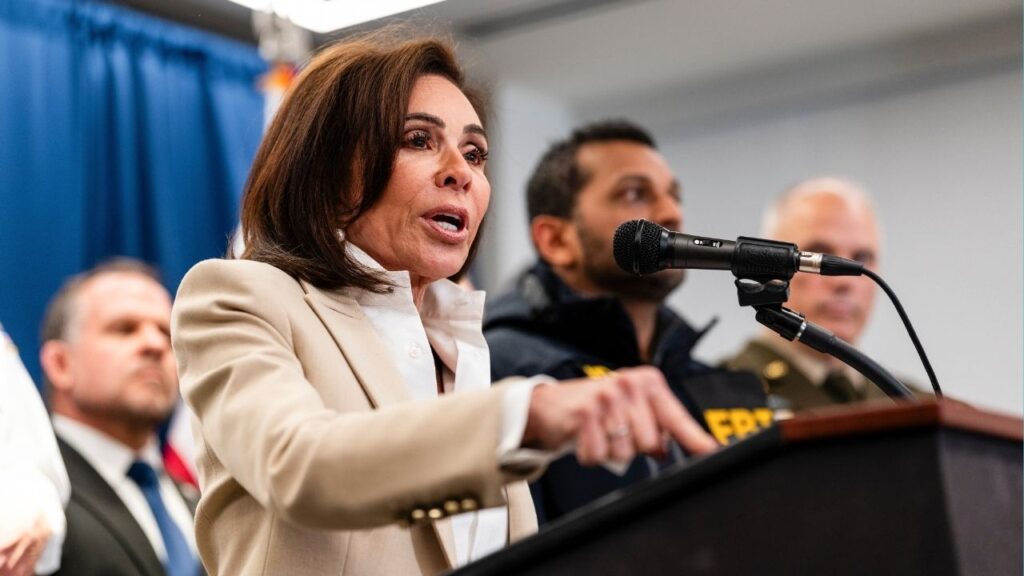Share
![]()
■Lawmakers express concerns over national security due to TikTok’s ties with China.
■TikTok spokesperson criticizes the secretive process of the bill’s passage.
■TikTok influencers protest against the bill, highlighting the platform’s positive impact on their lives.
WASHINGTON — The House on Wednesday passed a bill that would lead to a nationwide ban of the popular video app TikTok if its China-based owner doesn’t sell, as lawmakers acted on concerns that the company’s current ownership structure is a national security threat.
The bill, passed by a vote of 352-65, now goes to the Senate, where its prospects are unclear.
TikTok, which has more than 150 million American users, is a wholly owned subsidiary of Chinese technology firm ByteDance Ltd.
Concerns Over National Security
The lawmakers contend that ByteDance is beholden to the Chinese government, which could demand access to the data of TikTok’s consumers in the U.S. any time it wants. The worry stems from a set of Chinese national security laws that compel organizations to assist with intelligence gathering.
“We have given TikTok a clear choice,” said Rep. Cathy McMorris Rodgers, R-Wash. “Separate from your parent company ByteDance, which is beholden to the CCP (the Chinese Communist Party), and remain operational in the United States, or side with the CCP and face the consequences. The choice is TikTok’s.”
House passage of the bill is only the first step. The Senate would also need to pass the measure for it to become law, and lawmakers in that chamber indicated it would undergo a thorough review. Senate Majority Leader Chuck Schumer, D-N.Y., said he’ll have to consult with relevant committee chairs to determine the bill’s path.
President Joe Biden has said if Congress passes the measure, he will sign it.
Impact on TikTok Users
The House vote is the latest example of increased tensions between China and the U.S. By targeting TikTok, lawmakers are tackling what they see as a grave threat to America’s national security — but also singling out a platform popular with millions of people, many of whom skew younger, just months before an election.
Alex Haurek, a TikTok spokesperson, said in a statement after the vote that the bill was jammed through as part of a secretive process.
“We are hopeful that the Senate will consider the facts, listen to their constituents, and realize the impact on the economy, 7 million small businesses, and the 170 million Americans who use our service,” Haurek said.
Overall, 197 Republican lawmakers voted for the measure and 15 against. On the Democratic side, 155 voted for the bill and 50 against.
Some Republican opponents of the bill said the U.S. should warn consumers if there are data privacy and propaganda concerns, but the final choice should be left with consumers. Democrats also warned of the impact a ban would have on users in the U.S., including entrepreneurs and business owners.
“The answer to authoritarianism is not more authoritarianism,” said Rep. Tom McClintock, R-Calif. “The answer to CCP-style propaganda is not CCP-style oppression. Let us slow down before we blunder down this very steep and slippery slope.”
Rep. Thomas Massie, R-Ky., opposed the bill. He said the U.S. would never stand for another country demanding that an American company sell to another party or face a ban.
“We wouldn’t let another country take over Ford Motor Co. for selling Ford cars in their country. Yet that’s what we’re wanting to do here,” Massie said. “This is a cure that is worse than the disease.”
Future of TikTok
The day before the House vote, top national security officials in the Biden administration held a closed-door briefing with lawmakers to discuss TikTok and the national security implications. Lawmakers are balancing those security concerns against a desire not to limit free speech online.
“What we’ve tried to do here is be very thoughtful and deliberate about the need to force a divestiture of TikTok without granting any authority to the executive branch to regulate content or go after any American company,” said Rep. Mike Gallagher, the bill’s author, as he emerged from the briefing.
TikTok has long denied that it could be used as a tool of the Chinese government. The company has said it has never shared U.S. user data with Chinese authorities and won’t do so if it is asked. To date, the U.S. government also has not provided any evidence that shows TikTok shared such information with Chinese authorities.
Republican leaders moved quickly to bring up the bill after its introduction last week. A House committee approved the legislation unanimously, on a 50-0 vote, even after their offices were inundated with calls from TikTok users demanding they drop the effort. Some offices even shut off their phones because of the onslaught. Supporters of the bill said the effort backfired.
“(It) provided members a preview of how the platform could be weaponized to inject disinformation into our system,” Gallagher said.
Lawmakers in both parties are anxious to confront China on a range of issues. The House formed a special committee to focus on China-related issues. And Schumer directed committee chairs to begin working with Republicans on a bipartisan China competition bill.
Schumer is likely to feel some pressure from within his own party to move on the TikTok legislation. Senate Intelligence Committee Chairman Mark Warner announced after the House vote that he will work to “get this bill passed through the Senate and signed into law.”
In a joint statement with Sen. Marco Rubio, the top Republican on the Intelligence panel, Warner said that “we are united in our concern about the national security threat posed by TikTok – a platform with enormous power to influence and divide Americans whose parent company ByteDance remains legally required to do the bidding of the Chinese Communist Party”
Missouri Sen. Josh Hawley, who has been pushing to ban TikTok for the last year, posted on X after the vote: “NOW is the time to act on TikTok and stop China spying. The Senate should take up this bill immediately.”
Roughly 30 TikTok influencers and others who traveled with them spoke out against the bill on Capitol Hill on Wednesday. They chanted phrases like “Keep TikTok” ahead of the vote. They also held signs that read “TikTok changed my life for the better” and “TikTok helped me grow my business.”
Dan Salinger, a Sacramento, California-based TikTok creator in attendance, said he started creating content on the app during the COVID-19 pandemic purely out of boredom. But since then his account, which features videos about his life and his father, who suffers from dementia, has grown in popularity. Today, he has 2 million followers on the app.
“I’m actually appalled for many reasons,” Salinger said. “The speed with which they’re pushing this bill through does not give enough time for Americans to voice their concerns and opinions.”
RELATED TOPICS:
Categories

Prosecutor in Charlie Kirk Case Denies Conflict of Interest

















